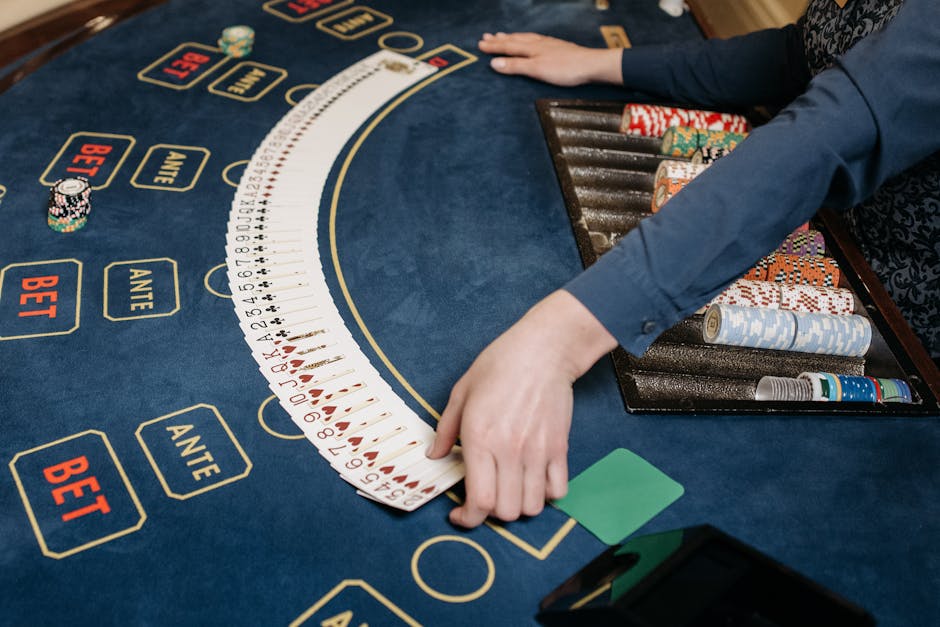Online casinos have exploded in popularity over the past decade, and with this surge has come a wave of skepticism from both new and seasoned players. At My Casino Lawyer, we hear one question more than almost any other: Are online casinos rigged? It’s a fair concern, especially when real money is on the line and trust is essential for an enjoyable gaming experience. Let’s break down the details—dispelling myths, revealing what really happens behind the scenes, and helping you play with confidence.

Why Are Players Concerned About Rigged Online Casinos?
- Lack of Transparency: Unlike a bricks-and-mortar casino, you can’t see the cards being shuffled or the roulette wheel spinning in front of you.
- Money on the Line: When you wager real money, any sense of unfairness (real or perceived) feels amplified.
- Horror Stories: The internet is littered with stories of slow payouts, confiscated winnings, or games that just “never seem to pay out.”
- Unregulated Platforms: Not all online casinos are created equal—some operate with little oversight, giving the rest a bad name.
But here’s the reality: if you stick to well-reviewed, licensed casinos, the risk of playing at a ‘rigged’ venue is actually very low.
Understanding Game Fairness: What Makes a Casino Game Fair?
Fairness in online casino games boils down to randomness and equal odds. Players want every spin, roll, or deal to be unpredictable and free from manipulation—by the casino, by software providers, or by other players.
- RNGs (Random Number Generators): All reputable online slots, video poker, roulette, and similar games use advanced RNG algorithms to determine outcomes. Simply put, RNGs generate unpredictable number sequences, ensuring fair results for each game round.
- Return to Player (RTP): This is the theoretical percentage of money wagered on a game that will be paid back to players over time. It’s set by the game provider—not the individual casino—and cannot be changed by the casino operator.
- Licensing and Regulation: Trustworthy casinos are licensed by respected authorities like the Malta Gaming Authority (MGA), UK Gambling Commission (UKGC), or others. These regulators require regular independent testing of (RNGs), payout percentages, and responsible gaming protocols.
- Third-Party Audits: Auditing organizations like eCOGRA, iTech Labs, and GLI regularly check the fairness and randomness of games at leading casinos. Casinos often display these certifications on their sites.

How Do RNGs Actually Work?
Random Number Generators are the heart of game fairness, so let’s take a closer look:
- Every modern slot or table game uses an RNG program that cycles through billions of number combinations per second—even when nobody is playing.
- When you click “spin” or “deal”, the current number produced by the RNG is used to determine the outcome instantly. Neither the casino nor the player can influence or predict the result.
- External auditors regularly inspect the RNG systems at licensed casinos, ensuring they meet stringent fairness requirements.
Contrary to urban legends, there’s no way for a legitimate gaming operator to ‘tighten’ the odds or change the outcome on a whim. The outcome is, by design, unpredictable and independent for each play.
Licensing: The First Filter for Casino Fairness
One of the first things we check in our reviews at My Casino Lawyer is a casino’s license. Strong licenses (like those from MGA, UKGC) require:
- Audited RNG certification
- Clear, published terms for bonuses and payouts
- Responsible gaming protections
- Alternative Dispute Resolution (ADR) channels for player complaints
While even the best licensing can’t cover every eventuality, a licensed casino is worlds apart from an unregulated, fly-by-night operation.

Signs an Online Casino Might Be Rigged (and How to Spot Them)
Here are some red flags:
- No License Displayed: Legit casinos proudly display licensing info. If you can’t find it, be suspicious.
- Unrealistic Bonuses: Giant bonuses with impossible-to-meet rollover requirements or unclear terms can be a sign of unfair practices.
- Lack of Third-Party Certification: If there’s no mention of audits or testing, that’s a serious omission.
- Unresolved Player Complaints: Reputable casinos resolve complaints quickly. Persistent, unresolved issues with payouts or game fairness are major warning signs.
- No Responsible Gaming Tools: A casino that doesn’t offer deposit limits, loss limits, or self-exclusion is not prioritizing fairness or safety.
This is exactly why we at My Casino Lawyer maintain strict review criteria and highlight missing responsible gaming tools publicly in our reviews.
Common Myths About Online Casino Games
- “The games are programmed to take your money.” In reality, the odds are determined by the math of the game and the RNG. While the house always has the edge (in both online and offline casinos), it’s not the same as being rigged.
- “Winning streaks or loss streaks mean the game is fixed.” Streaks happen even in fair, properly-randomized games. Human brains are wired to find patterns, but that doesn’t mean there’s an underlying conspiracy—just luck and probability at work.
- “Casinos can change the odds whenever they want.” At licensed venues, casinos can’t alter RTP or winning odds for individual players. Game providers set these, and they must remain consistent until a new, audited version is installed.

What About Live Casino Games?
Live casino games, where human dealers manage the table via video stream, add an extra layer of trust for many players. You can see every card shuffle and roulette spin in real time, just like in a physical casino. Plus, these games are rigorously monitored, and their outcomes are streamed live to ensure transparency. Look for live games at casinos licensed by major authorities for maximum peace of mind.
Can Players Check Game Fairness Themselves?
- Check for Licensing and Audits: Look for MGA, UKGC, or similar licenses, and certification from eCOGRA or iTech Labs.
- Read Player Feedback: Review sections—like the ones on My Casino Lawyer—let players post honest reviews. A pattern of credible, unresolved issues is a big red flag.
- Review RTPs: Trusted casinos post theoretical RTPs for slots and table games. You can also research what the standard RTP is for a given game and compare.
What to Do If You Suspect Unfair Play?
If you feel something isn’t right—unexplained losses, suspiciously delayed payouts, or the sense that games are acting in a non-random way—take action:
- Stop Depositing: Don’t risk any more funds.
- Contact Customer Support: Raise your concerns and ask for their response on RNG certification, payout logs, etc.
- Document Everything: Take screenshots and keep a written record of your gameplay and communication.
- File a Complaint: If the casino is licensed, use the regulator’s complaint mechanism. We’re also working to launch our own Complaint Resolution Center for players.
- Post a Review: Share your honest experience to warn others and pressure the casino to resolve your issue.
Final Thoughts: Can You Trust Online Casinos?
Here at My Casino Lawyer, our experience (and relentless research) shows: most online casinos, especially those with top-tier licenses, are not rigged. They operate under strict standards, subjected to regulatory scrutiny and third-party audits.
However, the internet isn’t short on shady operators eager to make a quick buck at your expense. That’s why it’s critical to rely on independent, honest reviews and community feedback before signing up to play.
Remember, randomness is not the same as unfairness. You might hit a losing streak or miss that bonus round—this is just the reality of probability. Always gamble responsibly and keep your expectations realistic.

Your Safe Play Checklist
- Only play at casinos with proven licenses and visible audit certifications
- Research games’ published RTPs and verify software providers
- Check real user reviews, not just marketing claims
- Use responsible gaming tools to control your spend
- If something seems off, speak up—and let the community know
We’re committed to keeping the community informed and empowered. For the most up-to-date, honest casino reviews, guides, and to join a player-driven community, visit My Casino Lawyer. Share your experiences, read real reviews, or even contribute your own—the fight for fair play starts with informed players like you!









